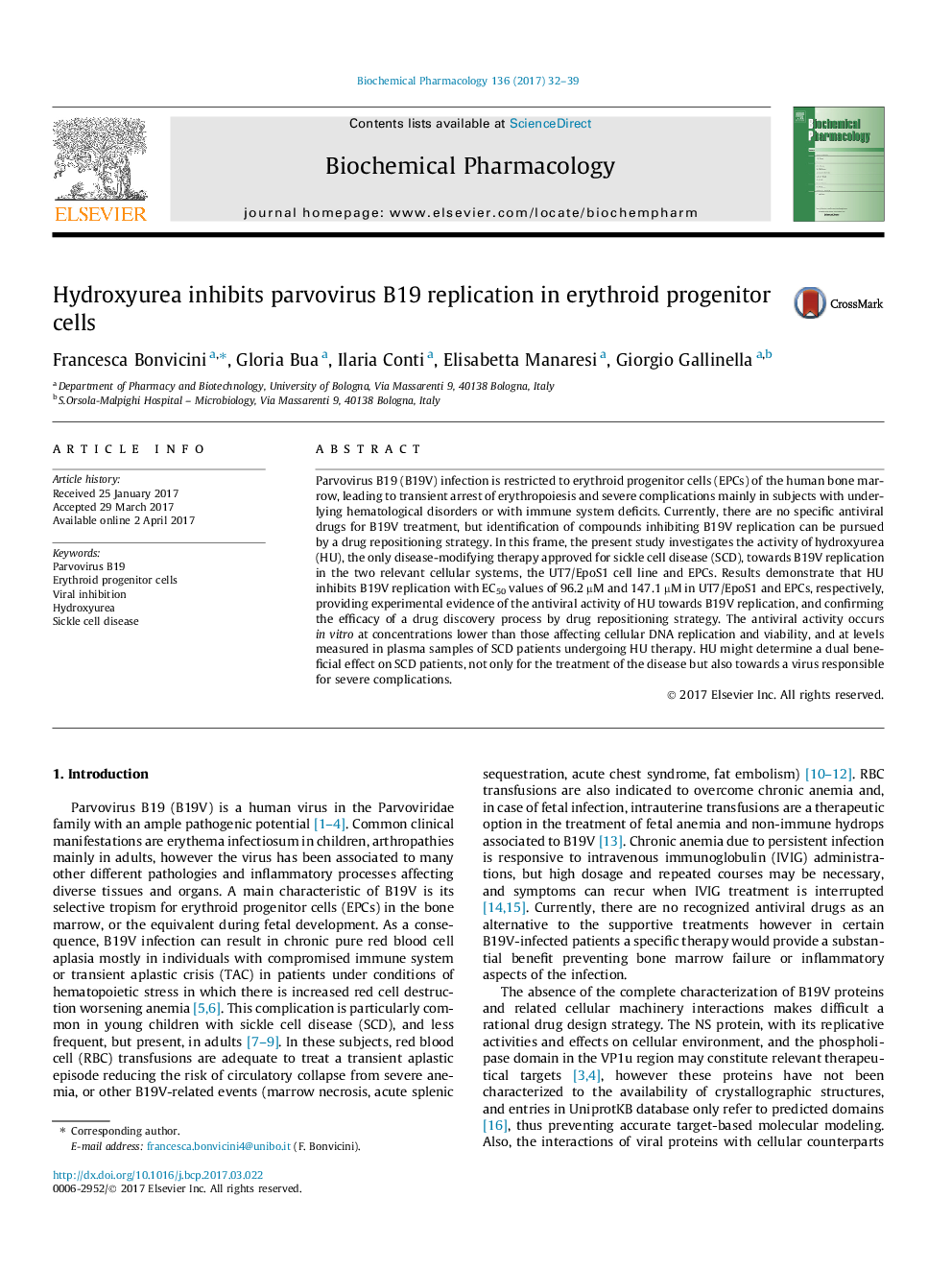| Article ID | Journal | Published Year | Pages | File Type |
|---|---|---|---|---|
| 5552204 | Biochemical Pharmacology | 2017 | 8 Pages |
Parvovirus B19 (B19V) infection is restricted to erythroid progenitor cells (EPCs) of the human bone marrow, leading to transient arrest of erythropoiesis and severe complications mainly in subjects with underlying hematological disorders or with immune system deficits. Currently, there are no specific antiviral drugs for B19V treatment, but identification of compounds inhibiting B19V replication can be pursued by a drug repositioning strategy. In this frame, the present study investigates the activity of hydroxyurea (HU), the only disease-modifying therapy approved for sickle cell disease (SCD), towards B19V replication in the two relevant cellular systems, the UT7/EpoS1 cell line and EPCs. Results demonstrate that HU inhibits B19V replication with EC50 values of 96.2 µM and 147.1 µM in UT7/EpoS1 and EPCs, respectively, providing experimental evidence of the antiviral activity of HU towards B19V replication, and confirming the efficacy of a drug discovery process by drug repositioning strategy. The antiviral activity occurs in vitro at concentrations lower than those affecting cellular DNA replication and viability, and at levels measured in plasma samples of SCD patients undergoing HU therapy. HU might determine a dual beneficial effect on SCD patients, not only for the treatment of the disease but also towards a virus responsible for severe complications.
Graphical abstractDownload high-res image (173KB)Download full-size image
